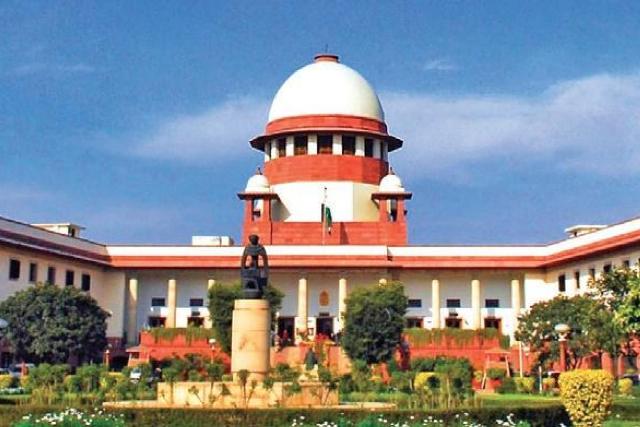TNI Bureau: In a historic decision, the Supreme Court of India today refused to give legal status to the Lesbian, Gay Bisexual, Transgender, Queer, Intersex, and Asexual (LGBTQIA+) community.
A 5-judge Constitution Bench comprising Chief Justice of India DY Chandrachud, Justices Sanjay Kishan Kaul, S Ravindra Bhat, Hima Kohli and PS Narasimha delivered the judgment in a batch of twenty petitions which seek legal recognition for same-sex and queer marriages. The apex court had reserved its judgment on 11 May.
Apart from not giving the legal recognition to same-sex marriages, the apex court also said that no constitutional or fundamental right will be given to the civil unions.
CJI DY Chandrachud said that has dealt with the issue of judicial review and separation of powers. “The doctrine of separation of powers means that each of the three organs of the State perform distinct functions. No branch can function any others’ function. The Union of India suggested that this court would violate the doctrine of separation of powers if it determines the list. However, the doctrine of separation of powers does not bar the power of judicial review.”
“The Constitution demands that this court protect the fundamental rights of citizens. The doctrine of separation of powers does not come in the way of this court issuing directions for the protection of fundamental rights,” the CJI added, as quoted by ANI.
He further said, “Union Government will constitute a committee to decide the rights and entitlements of persons in queer unions. This Committee to consider to include queer couples as ‘family’ in ration cards, enabling queer couples to nominate for joint bank accounts, rights flowing from pension, gratuity etc. The Committee report to be looked at Union Government level.”.
Support Independent Journalism? Keep us live.
The CJI directed the Centre and State governments to ensure that there is no discrimination in access to goods and services to the queer community and government to sensitise public about queer rights. Government to create hotline for queer community, create safe houses ‘Garima Grih’ for queer couples who face violence and ensure inter-sex children are not forced to undergo operations.
The CJI further stated that right to enter into a union cannot be restricted on the basis of sexual orientation. Transgender persons in heterosexual relationships have the right to marry under the existing laws including personal laws. Unmarried couples, including queer couples, can jointly adopt a child.
On the other hand, Justice Ravindra Bhat, as reported by ANi, does not agree with the directions issued by the CJI on the Special Marriage Act.
“There cannot be an unqualified right to marry which is to be treated as a fundamental right. While we agree that there is a right to a relationship, we squarely recognise that it falls within Article 21. It includes the right to choose a partner and enjoy physical intimacy with them including the right to privacy, autonomy etc. and should enjoy this right undisturbed from society and when threatened State has to protect the same. There cannot be any doubt that there is a choice to have a life partner,” he said.
“Non-heterosexual unions are entitled to protection under the Constitution,” Justice Sanjay Kishan Kaul said as quoted by the news agency. “Legal recognition of same-sex unions is a step towards marriage equality. However, marriage is not the end. Let us preserve autonomy as it does not impinge on others’ rights,” he said.
(With inputs from ANI)


Comments are closed.